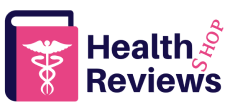Healthcare is one of the most important sectors in any country, and Canada has been praised for its universal healthcare system. However, there are still challenges that come with providing quality care to all citizens. One such challenge is accessibility, especially when it comes to remote areas where medical professionals may not be readily available. This is why working from home as a healthcare professional can be beneficial, but how easy or difficult is it really?
Why is healthcare so expensive?
The cost of healthcare continues to rise every year, making it unaffordable for many people around the world. According to reports by the World Bank, the global spending on healthcare was estimated at $7 trillion in 2018. The high costs associated with healthcare include advanced technology, pharmaceuticals, administrative overheads, and insurance premiums among others. In addition, the US spends more money per capita than other countries due to their private-based healthcare system. Therefore, governments need to prioritize investment in public health systems to reduce these expenses.
Is Working From Home As A Healthcare Professional Easy Or Difficult?
With advancements in technology, telemedicine has become increasingly popular over recent years. Many healthcare providers now offer virtual consultations through video calls or messaging platforms. While this offers convenience for both patients and doctors alike, some argue that it’s not always an easy feat. For instance, ensuring patient privacy and confidentiality during online appointments requires extra precautions. Additionally, having adequate equipment and internet connection can also pose a challenge. Nonetheless, with proper training and resources, working from home as a healthcare professional can be highly rewarding.
Best Ways For Healthcare Reform And Quality Improvement
There are several ways that healthcare reform and improvement can take place. Firstly, improving communication between patients and healthcare providers can lead to better outcomes. Patients should feel comfortable asking questions about their treatment plans and medication, while healthcare providers must ensure they fully understand each patient’s needs. Secondly, implementing new technologies like electronic health records (EHR) can streamline processes and improve efficiency. Thirdly, promoting preventative measures such as regular checkups and vaccinations can help avoid unnecessary hospitalizations and treatments. Finally, encouraging collaboration between different healthcare teams including nurses, physicians, and specialists can enhance overall care delivery.

